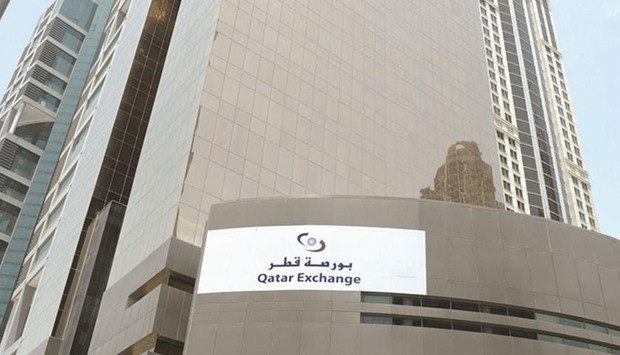Rather the 1.2mn daily production cut decision by the Organisation of Petroleum Exporting Countries (Opec) largely had its overarching effect in lifting the QSE 1.69% during the week which saw Qatar decide to merge its giant liquefied natural gas producers Qatargas and RasGas, aiming substantial savings in operating costs.
Kuwait and Muscat saw 1.42% and 1.08% gains, while Abu Dhabi, Saudi Arabia, Bahrain and Dubai fell 1.2%, 0.38%, 0.27% and 0.12% respectively during the week which witnessed Qatar Central Bank announce 25 basis points cut in its overnight lending and deposit rates.
QSE, however, saw its year-to-date losses at 1.97% compared to 2.24% in Bahrain, whereas Dubai surged 12.8%, Muscat (5.96%), Abu Dhabi (3.62%), Saudi Arabia (2.59%) and Kuwait (0.95%).
Realty, industrials and banking sectors registered higher than average buying in the QSE during the week which saw Qatar announce its cut in oil production from January 1, in line with the global oil producers' decision.
Islamic stocks however rose slower than the conventional scrips during the week which saw United Development Company (UDC) finalise the sale of The Pearl office Tower 2, to a strategic property investor for QR1.25bn.
Micro and large cap equities were seen outperforming the main index during the week which saw Qatar’s cost of living, based on consumer price index, rise 0.1% month-on-month this November owing to increased expenses towards transport, recreation and clothing.
Trade turnover and volumes were on the increase during the week which saw banking, real estate and telecom sectors together constituted about 79% of the total volumes.
In volumes, banks and financial services sector constituted 33% of the total, followed by realty (26%), telecom (19%), industrials (15%), consumer goods (3%) and transport and insurance (2% each) during the week which saw which saw banking and industrials register faster expansion in trade volumes and value.
In value, banks and financial services’ share was 41%, followed by industrials (22%), real estate (16%), telecom (11%), consumer goods and insurance (4% each), and transport (3%) during the week, which saw Mazaya Qatar and Masraf Al Rayan dominate the trading ring in volumes and value.
Opening the week strong at 10,188 points, the market kept gaining for the next two days on the back of Opec decision to a high of 10,398 points. However, profit booking ensued for the next two days, mainly on the US Fed’s rate cut, but finally the market settled 170 points higher during the week.
The 20-stock Total Return Index rose 1.69%, All Share Index (comprising wider constituents) by 1.69% and Al Rayan Islamic Index by 1.12% during the week which featured a report from Ernst and Young hat said the Gulf could earn revenues in excess of $25bn annually through value added tax, proposed to be levied from 2018.
Realty sector its index vault 2.36%, industrials (2.27%), banks and financial services (1.96%), transport (1.51%), telecom (0.87%) and consumer goods (0.14%), while insurance fell 1.05% during the week.
Market capitalisation expanded about QR11bn or 2.01% to QR551.01bn with micro, large, mid and small cap equities gaining 1.78%, 1.72%, 1.11% and 0.83% respectively during the week.
Small, mid and microcap stocks have nevertheless reported year-to-date losses of 13.39%, 7.5% and 4.46% respectively, while large caps were up 0.12%.
Of the 44 stocks, as many as 30 gained, while 11 fell, two were unchanged and one was not traded. As many as 10 of the 13 banks and financial services, seven of the eight industrials, four each of the nine consumer goods and the four realty, two each of the five insurers and the three transport telecom, and one of the two telecom stocks settled higher during the week.
About 70% of the stocks extended gains with major movers being QNB, Industries Qatar, Mazaya Qatar, Ezdan, UDC, Barwa, Ooredoo, Milaha, Qatar First Bank, Qatar National Cement, Gulf International Services and Mesaieed Petrochemical Holding during the week.
Nevertheless, Commercial Bank, Mannai Corporation, Qatar Insurance, Vodafone Qatar, Al Meera and Al Khaleej Takaful were among the losers during the week.
Local retail investors’ net selling weakened perceptibly to QR115.93mn compared to QR161.42mn the previous week.
Domestic institutions’ net profit booking declined to QR3.1mn against QR9.89mn the week ended December 8.
However, non-Qatari individual investors turned net sellers to the tune of QR20.22mn compared with net buyers of QR9.24mn the previous week.
Foreign institutions’ net buying fell substantially to QR139.24mn against QR162.07mn the week ended December 8.
Total trade volume rose 18% to 54.98mn shares, value by 25% to QR1.63bn and transactions by 36% to 21,845 during the week.
The banks and financial services sector’s trade volume more than doubled to 18.14mn equities and value almost doubled to QR674.38mn on 85% rise in deals to 8,203.
The industrials sector reported 73% surge in trade volume to 8.01mn stocks, 48% in value to QR360.79mn and 52% in transactions to 4,540.
The real estate sector’s trade volume soared 61% to 14.49mn shares, value by 47% to QR256.16mn and deals by 22% to 3,707.
However, there was 66% plunge in the insurance sector’s trade volume to 1.07mn equities and 66% in value to QR60.93mn but on 35% jump in transactions to 665.
The telecom sector’s trade volume plummeted 37% to 10.58mn stocks, value by 13% to QR174.92mn and deals by 2% to 2,293.
The market witnessed 34% shrinkage in the consumer goods sector’s trade volume to 1.42mn shares, 40% in value to QR61.59mn and 2% in transactions to 1,537.
The transport sector’s trade volume tanked 33% to 1.27mn equities, value by 33% to QR41.73mn and deals by 25% to 900.
In the debt market, there was no trading of treasury bills but a total of 180,575 government bonds worth QR1.81bn changed hands across 17 transactions during the week.


